The international cross visit event in the year 2024 was held in Latvia in Sigulda. One of the project demo farms “Bracas” invited project partners to their farm to demonstrate the laser weeder effect in carrots.
The project experts were introduced to the field trial results from the season 2024 on carrot weeding. Latvian OPER8 participants include group of scientists and companies that have previously developed various innovative solutions for weed control. The experts came from the Sweden, Spain, Italy, Greece and Latvia.
LBTU is involved in the project, continuing the idea initiated in the ELFLA Cooperation project 16.1 regarding laser weeding in vegetable crops. During the project, LBTU Agrihorts organized Field Days to demonstrate the capabilities of laser weeding equipment.
The Latvian company Weedbot has developed a laser weed control device into a market-ready product. Economic calculations will be conducted during the project regarding the potential implementation of this technology in various farms across Europe and other parts of the world.
However, this type of work remains physically demanding, making it increasingly complex and expensive to attract seasonal workers year after year. The main reason manual labor is still widely used is the lack of suitable equipment available in the market. Weed control devices that primarily rely on soil cultivation (with or without optical control) cannot access the areas close to the crop without damaging it. Consequently, an untreated zone of 1–2 cm around the crop seedling remains, especially for seeded vegetables like carrots and beets, where weeds can germinate and grow.
One solution to this problem is laser weeding. The use of lasers for weed control offers several significant advantages:
- The laser beam is highly precise and allows treatment of weeds right next to the crop, even between them.
- There is no direct contact with the soil, enabling operation in challenging conditions such as rocky, waterlogged, or dry soil.
- The impact is targeted directly at the weed, with minimal effect on the soil and surrounding environment.
- Laser treatment can also be utilized in organic farming.
- There is no soil disturbance, leading to lower CO2 emissions from the soil.
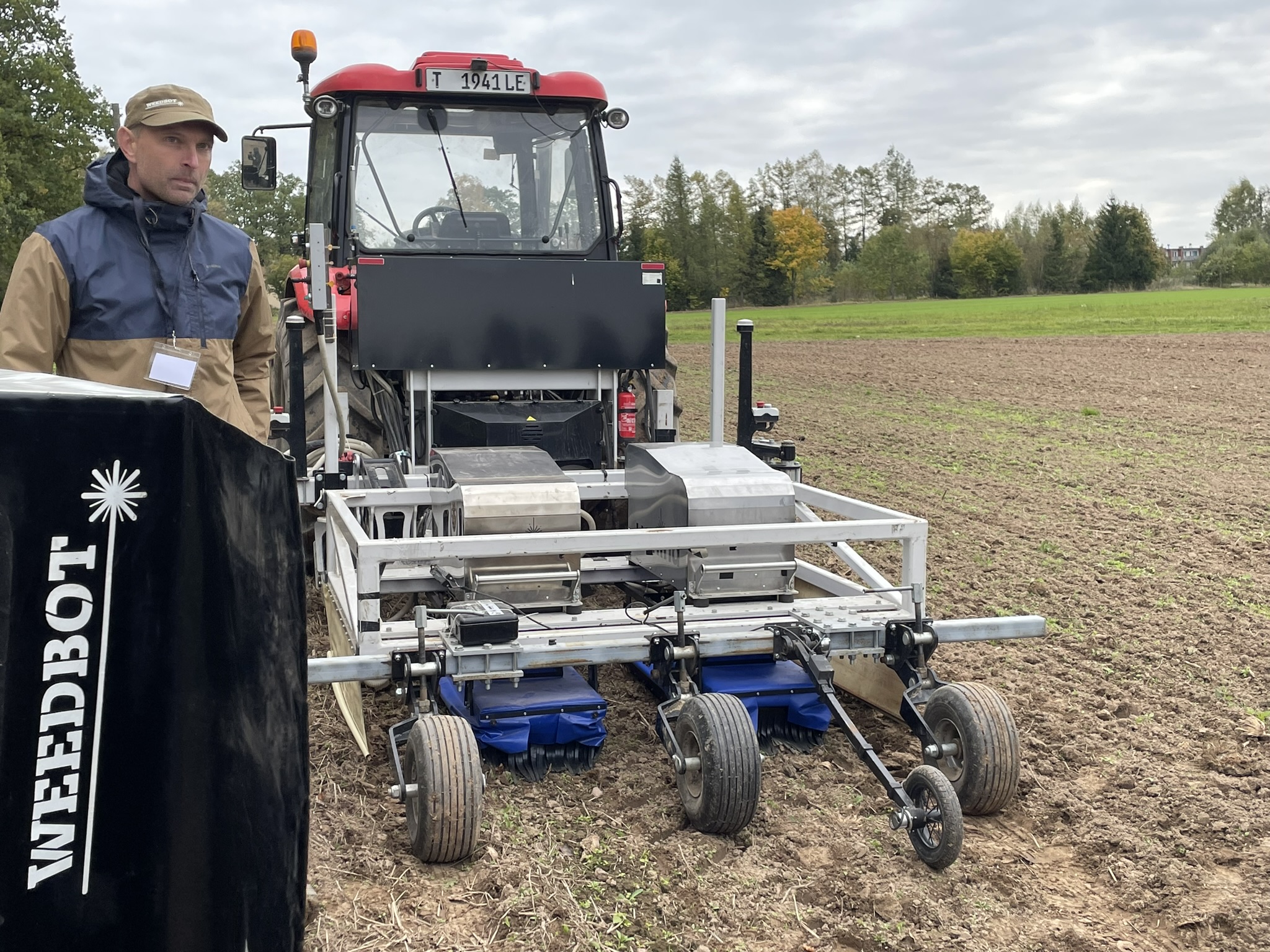
Several companies (e.g., Carbon Robotics, Earth Rover) are developing laser weeding technology, and research is being conducted by scientific institutions both in Europe and other regions. The Latvian company WeedBot has developed a laser weeding device.
The device uses a blue light laser. Plants absorb blue light very well, causing them to boil from the inside, and the treated parts of the plant wilt. The amount of energy is sufficient to completely turn smaller weeds into ash.
The equipment is modular and designed for 2–12 crop rows. The processing speed depends on the thickness of the weeds and can reach a maximum speed of up to 1.2 km/h. The laser beam used is only 2 mm wide, allowing it to treat weeds even at a millimeter distance from the crop.
Laser technology is most effective during the early stages of weed development, starting from 3–4 mm in size. Since new weeds can continue to germinate, especially after rain, laser treatment should be performed on average 3–4 times per season, depending on the level of weed infestation in the field.
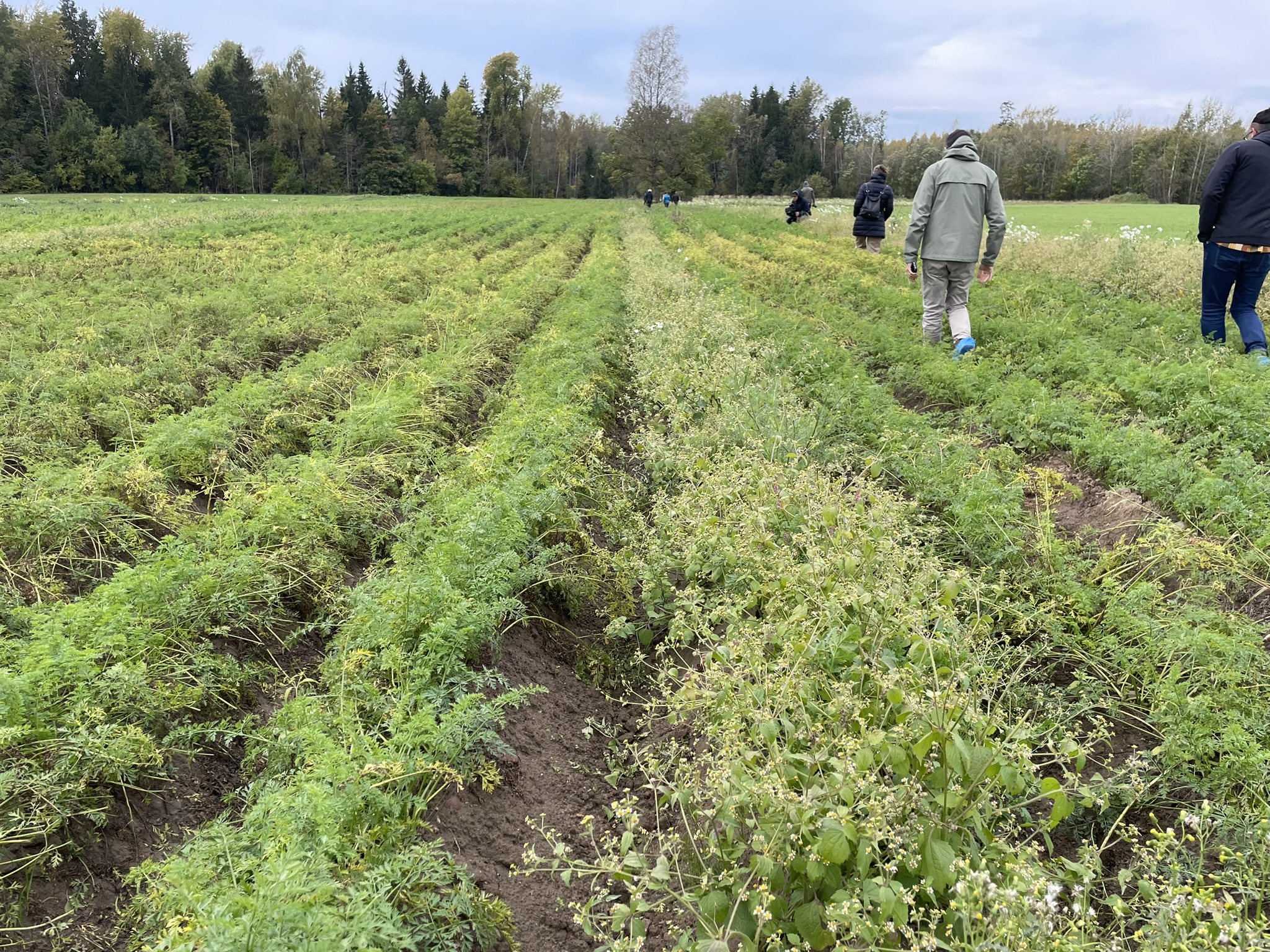
In the movie you will meet Elīza who works on the vegetable farm Bračas and they work with integrated weed management. They run tests with a laser robot that burns weeds in carrots rows.
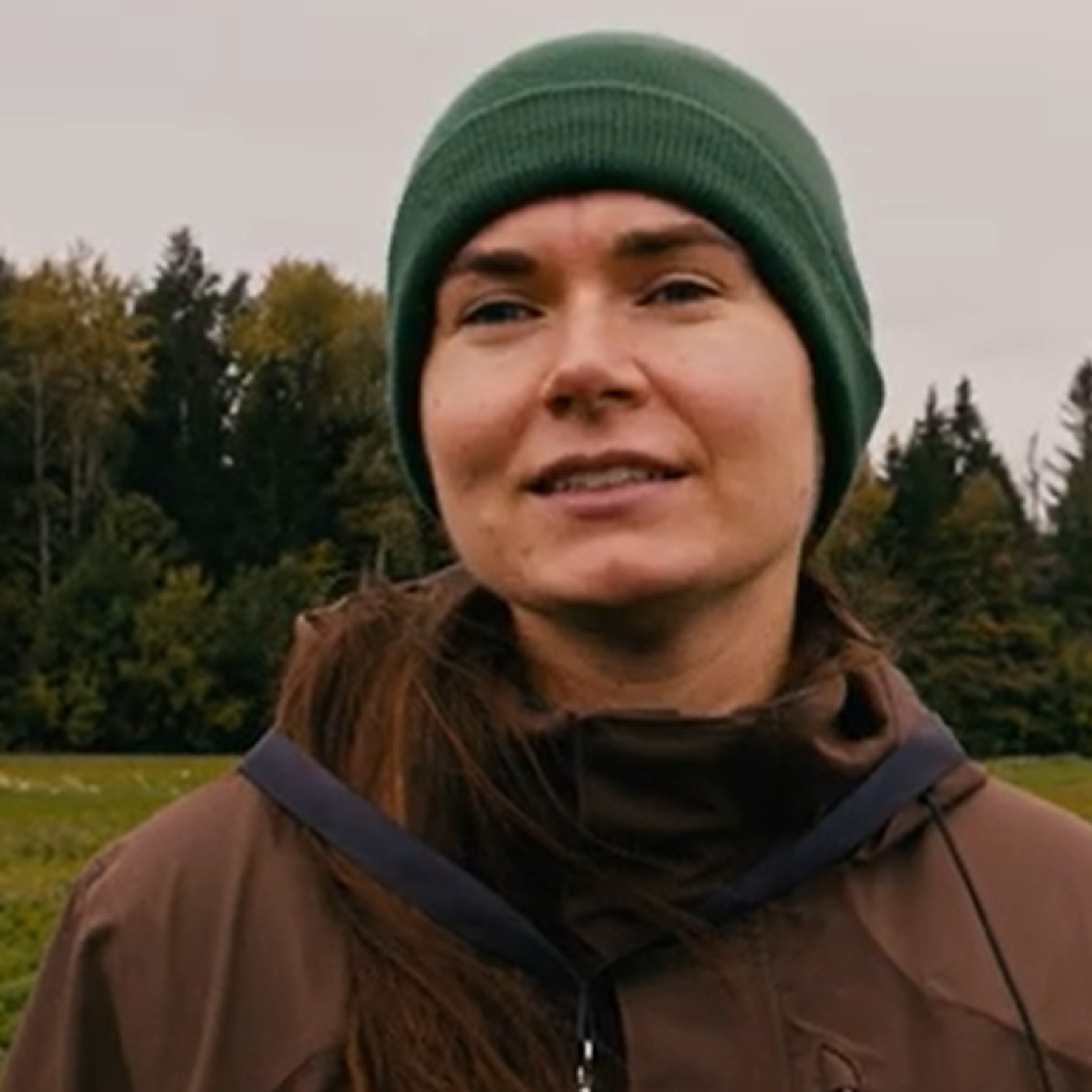
At farm Piladzi we gain insight how to control weeds in fruit and vegetable crops
In 1996, farm Piladzi were the first in Latvia to start growing fruit trees and berry bush seedlings in containers, as well as entering into contracts for seedling cultivation for commercial gardens. Each year, farm grows 15,000 to 20,000 fruit trees and berry bush seedlings. Piladzi also produces small quantities of ornamental seedlings (apple trees, rowan trees).
From August to March, the farm offers a variety of dessert apple and pear cultivars grown in our orchards, whose quality is ensured by an environmentally friendly, integrated cultivation system.
Farm Piladzi is also a partner in various projects, were IPM methods have been applied- decision support system RIMPRO has been tested and different methods to fight against weeds also. The glyphosate usage has been decreased- by applying mowing, covering and other methods.
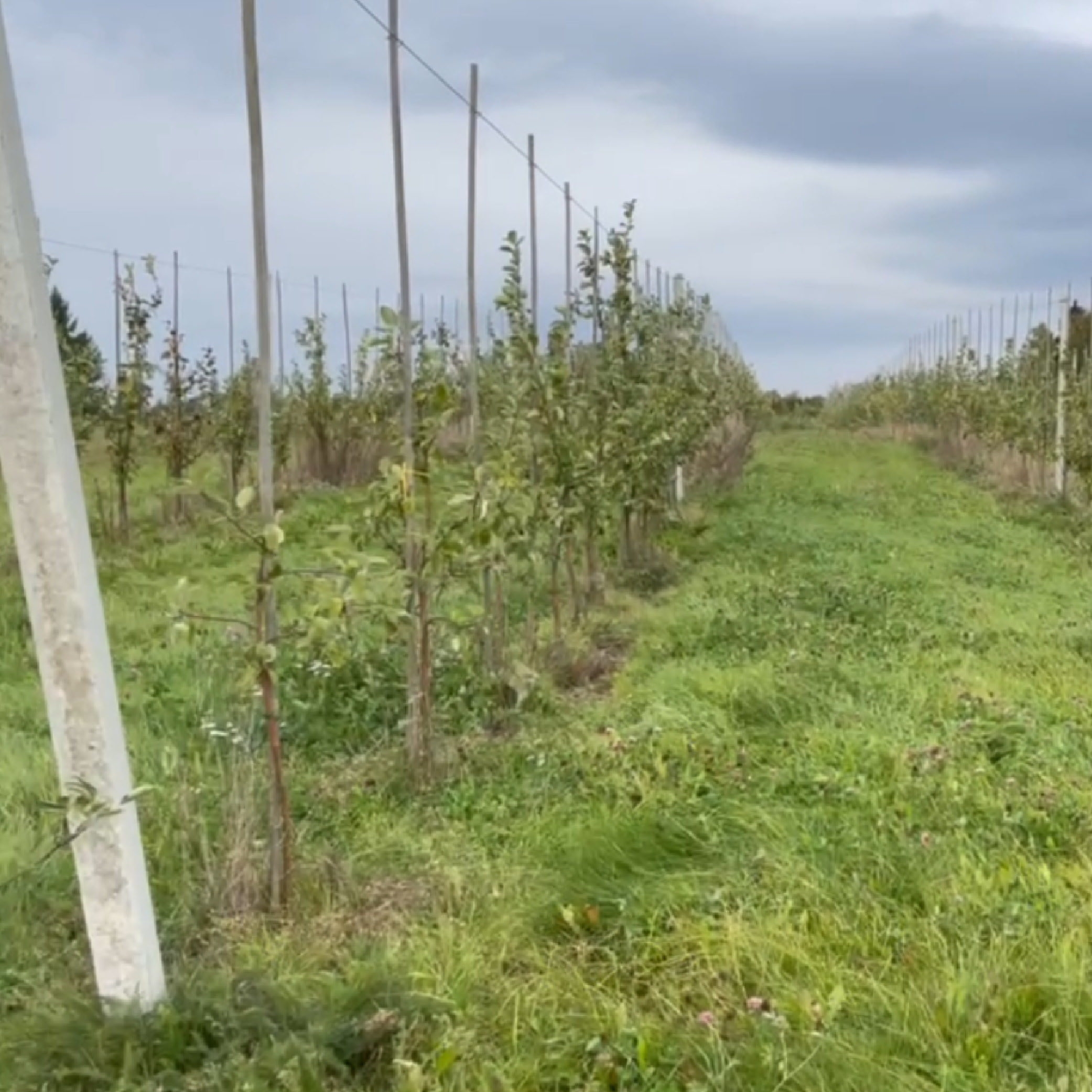
During a tour of one of the fruit orchards, their proprietor of the Farm Piladzi shared their experience with weed control using black cloth mulching.
In the video you can listen to Reinis Zilvers, plant breeder, fruit grower and winemaker at the Farm Piladzi.
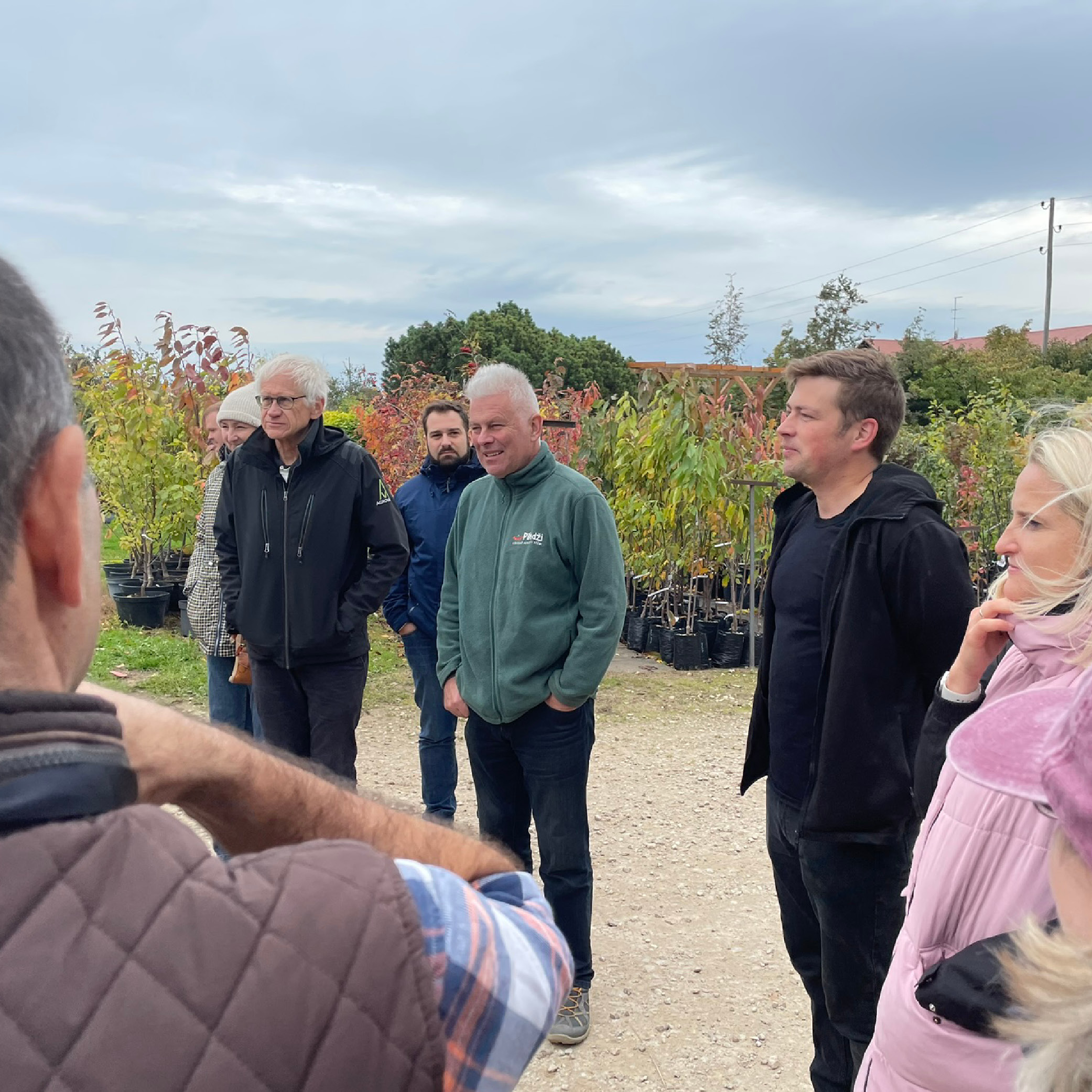
Learning more about Latvia and Sigulda area
This first day during the partner meeting we ended with a guided tour to Turaida Castle in Gauja National Park, where we got a wonderful view of the surroundings now bursting in red and yellow autumn colours.
We also had a beautiful trip around Sigulda, which is called Latvian Switzerland.
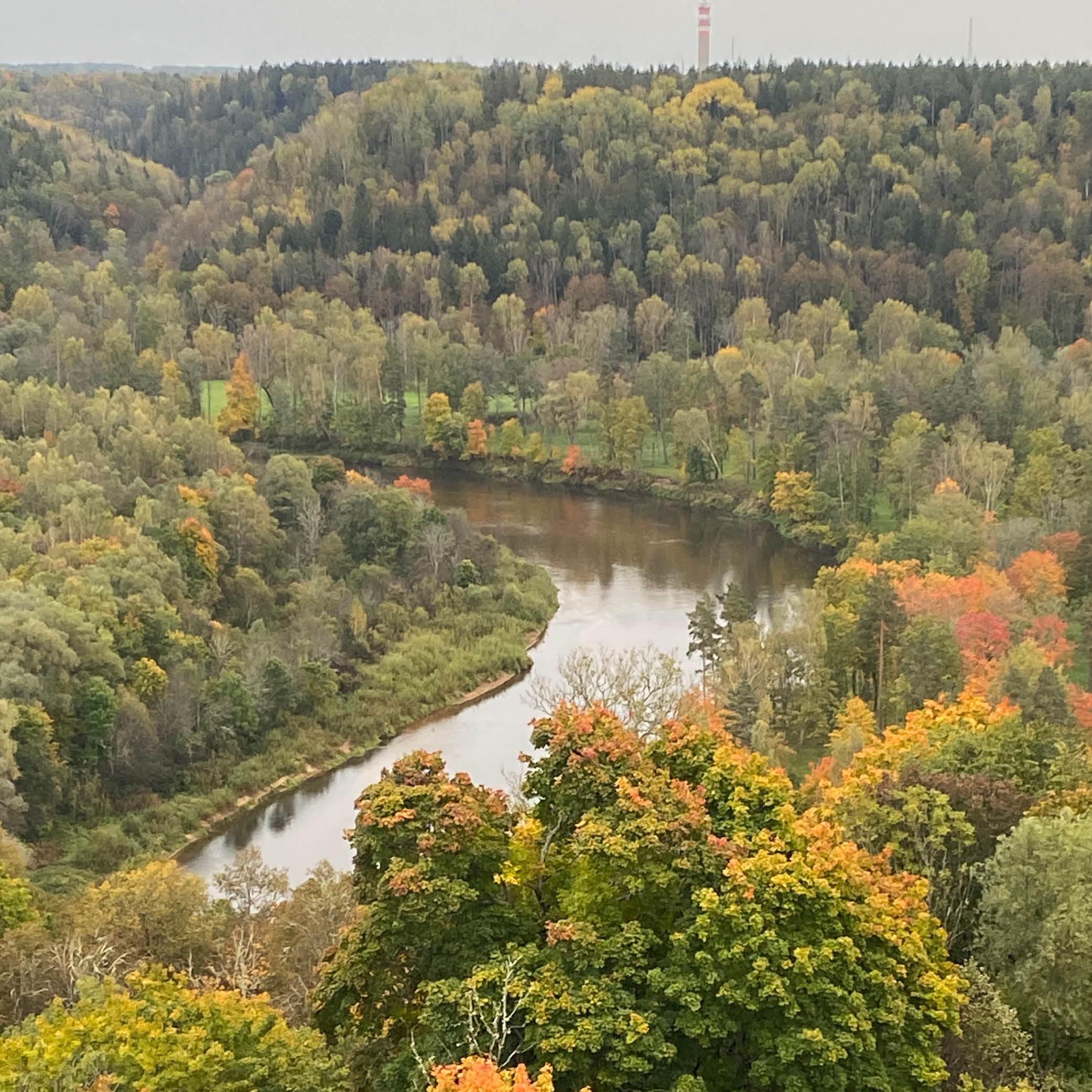
Oper8 project progress meeting
On the second day, everyone gathered to learn about all the work packages, status and future activities in the project.
At the end of the second day Jevgenija Necajeva presented the results of other Latvian project “Alternative weed control solutions in field crops” nr. 24-00-S0INZ03-000021 were alternative weed control solutions has been tested in field crops in the same field already for 2 years. Three different systems has been compared- no till, minimal till and conventional system. The main alternatives are mechanical treatments and pelargonic acida and paraffin oil usage.
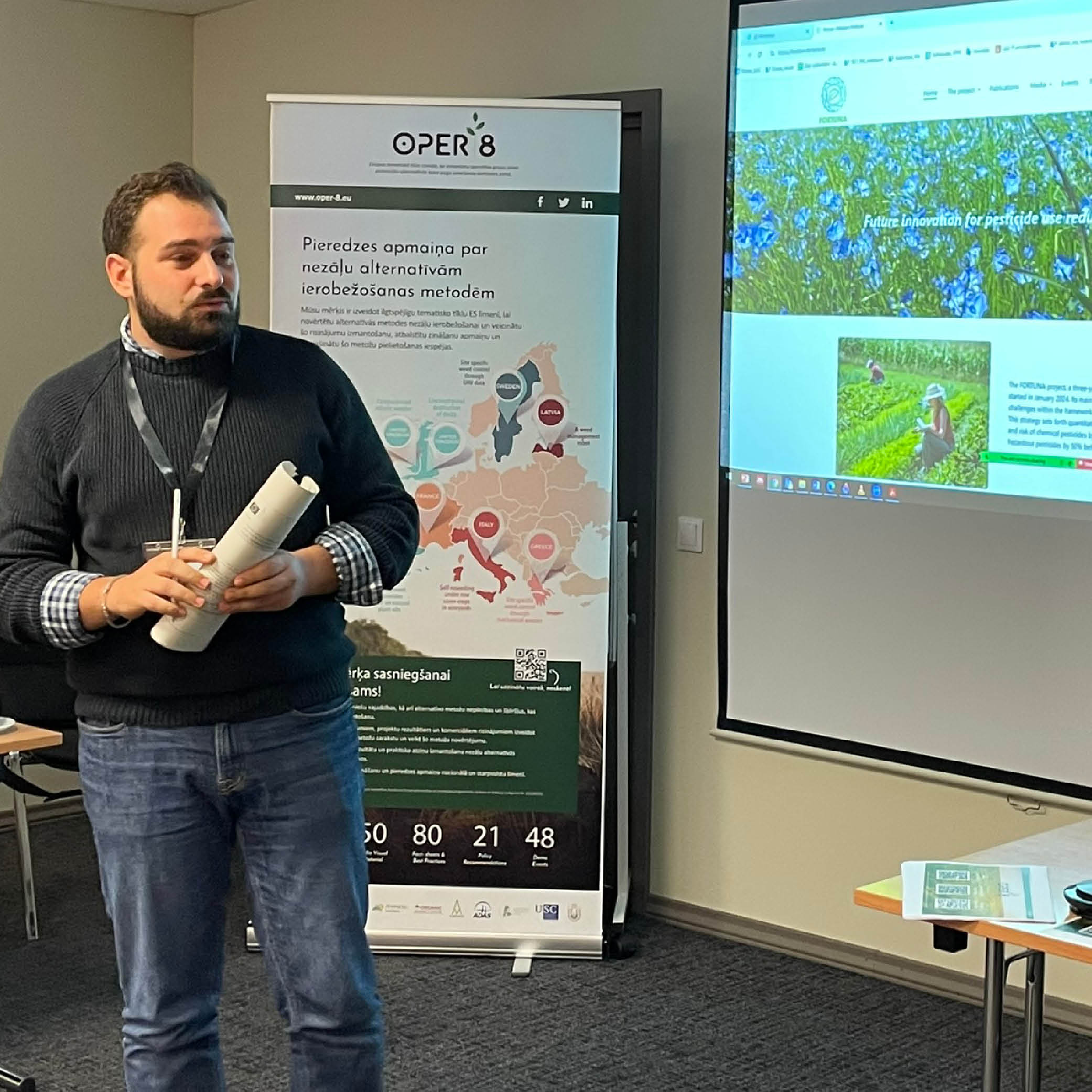
For the project partners, it was two very rewarding days where we exchanged many experiences, insights and thoughts on how to work with alternative weed control in the future.
Thanks to everyone who attended the meeting and to our hosts; Latvia University of Life Sciences and Technologies and the Farmers Parliament, ZSA.
Below is a small video from the annual partner meeting:









